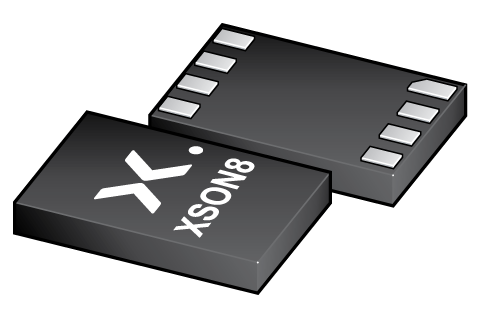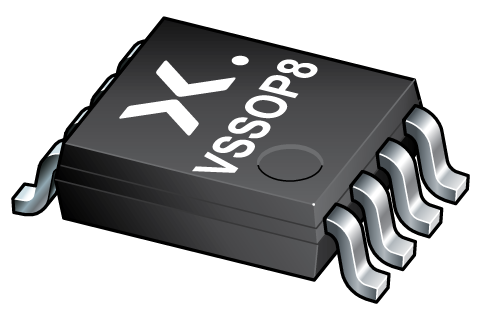
Register once, drag and drop ECAD models into your CAD tool and speed up your design.
Click here for more information74AHC2G125GD
Dual buffer/line driver; 3-state
The 74AHC2G125; 74AHCT2G125 is a dual buffer/line driver with 3-state outputs controlled by the output enable inputs (nOE). Inputs are overvoltage tolerant. This feature allows the use of these devices as translators in mixed voltage environments.
Alternatives
Features and benefits
Symmetrical output impedance
Balanced propagation delays
Wide supply voltage range from 2.0 to 5.5 V
Overvoltage tolerant inputs to 5.5 V
Input levels:
For 74AHC2G125: CMOS level
For 74AHCT2G125: TTL level
High noise immunity
CMOS low power dissipation
Latch-up performance exceeds 100 mA per JESD 78 Class II Level A
ESD protection:
HBM: ANSI/ESDA/JEDEC JS-001 class 2 exceeds 2000 V
CDM: ANSI/ESDA/JEDEC JS-002 class C3 exceeds 1000 V
Specified from -40 °C to +125 °C
参数类型
| 型号 | Package name |
|---|---|
| 74AHC2G125GD | XSON8 |
封装
下表中的所有产品型号均已停产 。
| 型号 | 可订购的器件编号,(订购码(12NC)) | 状态 | 标示 | 封装 | 外形图 | 回流焊/波峰焊 | 包装 |
|---|---|---|---|---|---|---|---|
| 74AHC2G125GD | 74AHC2G125GD,125 (935288554125) |
Obsolete | A25 Standard procedure Standard procedure |

XSON8 (SOT996-2) |
SOT996-2 | SOT996-2_125 |
文档 (5)
| 文件名称 | 标题 | 类型 | 日期 |
|---|---|---|---|
| 74AHC_AHCT2G125 | Dual buffer/line driver; 3-state | Data sheet | 2023-09-01 |
| AN10161 | PicoGate Logic footprints | Application note | 2002-10-29 |
| AN11106 | Pin FMEA for AHC/AHCT family | Application note | 2019-01-09 |
| Nexperia_package_poster | Nexperia package poster | Leaflet | 2020-05-15 |
| SOT996-2 | plastic, leadless extremely thin small outline package; 8 terminals; 0.5 mm pitch; 3 mm x 2 mm x 0.5 mm body | Package information | 2020-04-21 |
Longevity
The Nexperia Longevity Program is aimed to provide our customers information from time to time about the expected time that our products can be ordered. The NLP is reviewed and updated regularly by our Executive Management Team. View our longevity program here.
模型
No documents available
How does it work?
The interactive datasheets are based on the Nexperia MOSFET precision electrothermal models. With our interactive datasheets you can simply specify your own conditions interactively. Start by changing the values of the conditions. You can do this by using the sliders in the condition fields. By dragging the sliders you will see how the MOSFET will perform at the new conditions set.
